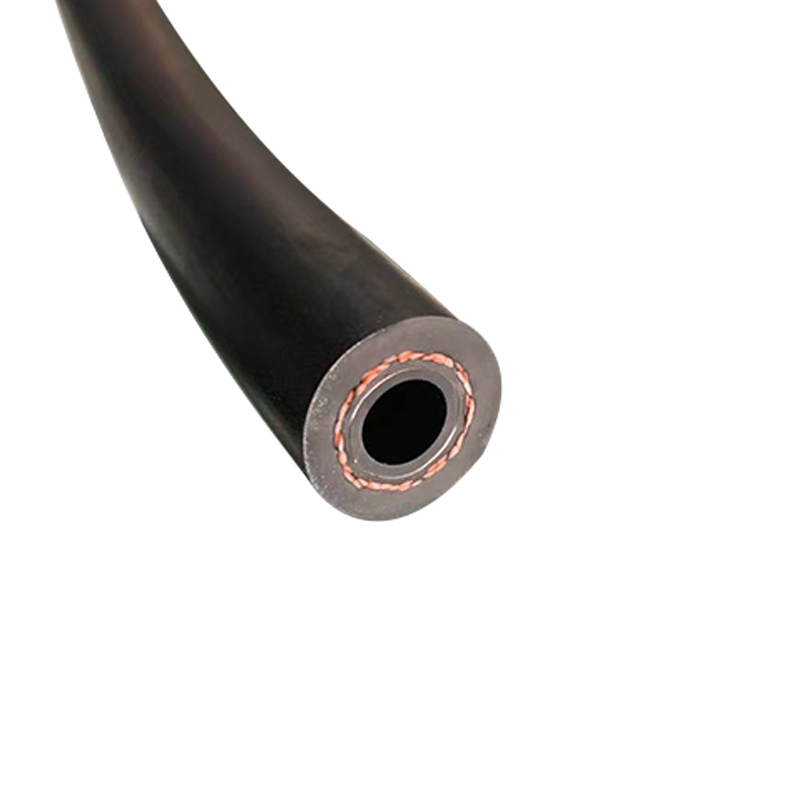Fuel Injector Return Hose Maintenance and Replacement Tips for Optimal Engine Performance
دېكابىر . 23, 2024 07:32 Back to list
Fuel Injector Return Hose Maintenance and Replacement Tips for Optimal Engine Performance
The Importance of Fuel Injector Return Hoses
When it comes to the intricate systems of modern vehicles, fuel injectors play a vital role in ensuring optimal engine performance. Fuel injector return hoses are an essential yet often overlooked component in this system. These hoses facilitate the effective functioning of fuel injectors by managing fuel flow and assisting in maintaining proper pressure levels within the fuel system. Understanding the role and importance of fuel injector return hoses can help vehicle owners and mechanics appreciate their significance in automotive maintenance.
What is a Fuel Injector Return Hose?
A fuel injector return hose is a specialized hose that connects the fuel injectors to the fuel tank or rail system. It is designed to manage the excess fuel that is not utilized by the fuel injectors during the combustion process. After the fuel injectors deliver the necessary fuel to the engine’s combustion chamber, any remaining fuel is directed back through the return hose to ensure that the system functions efficiently.
The construction of a fuel injector return hose typically involves durable materials designed to withstand high temperatures and corrosive environments. This is crucial, as fuel systems operate under various pressures and conditions. Common materials include rubber or reinforced thermoplastic, which provide flexibility while resisting degradation over time.
Functionality of Fuel Injector Return Hoses
The primary function of a fuel injector return hose is to regulate the fuel pressure within the system. Fuel injectors require a specific pressure to deliver the right amount of fuel for combustion. If the pressure is too high, it can lead to injector flooding, while too low a pressure can cause poor engine performance and reduced fuel efficiency.
By allowing excess fuel to return to the tank or fuel rail, the return hose plays a critical role in maintaining a balanced pressure throughout the fuel system. This process ensures that the injectors operate effectively, delivering precise amounts of fuel needed for optimal performance.
Moreover, a well-functioning return hose helps to prevent fuel vaporization, which can occur if the fuel is left stagnating in the system. By continually cycling the fuel back to the tank, the hose ensures that the fuel remains at an appropriate temperature and pressure, promoting efficiency and reducing emissions.
Signs of Issues with Fuel Injector Return Hoses
fuel injector return hose

Like any automotive component, fuel injector return hoses are susceptible to wear and tear. Over time, they can become damaged due to factors like corrosion, heat, and constant vibrations from the engine. A few signs may indicate problems with a fuel injector return hose
1. Fuel Leaks If you notice fuel pooling under your vehicle or a pronounced fuel smell, it could suggest a leak in the return hose. This poses serious safety hazards and needs immediate attention.
2. Poor Engine Performance If your vehicle is experiencing a decrease in power, misfiring, or rough idling, the issue might stem from a malfunctioning return hose affecting fuel pressure.
3. Check Engine Light An illuminated check engine light may point toward various issues, including problems within the fuel system. A diagnostic check can help determine the specific cause.
4. Increased Fuel Consumption If your vehicle's fuel efficiency suddenly drops, it may be related to an issue with the fuel system, including the return hose.
Maintenance and Replacement
Regular inspection of the fuel injector return hoses is an essential part of maintaining a vehicle’s fuel system. During routine oil changes or inspections, mechanics should examine the hoses for cracks, leaks, or other signs of wear. Addressing these issues early can help prevent more severe problems down the line.
If a fuel injector return hose is found to be faulty, it is crucial to replace it promptly. The procedure typically involves disconnecting the old hose and attaching a new one, ensuring that the connections are secure to prevent leaks.
Conclusion
Fuel injector return hoses might not get the attention they deserve but play a crucial role in ensuring the smooth operation of an engine. By managing fuel flow and maintaining pressure, these hoses contribute to the overall efficiency and performance of a vehicle. Regular maintenance and timely replacement of damaged hoses can enhance engine longevity and performance, making it an essential aspect of automotive care.
Latest news
-
Seven-Layer Winding A/C Hose Type C-HEBEI KEMO AUTO PARTS TECHNOLOGY CO., LTD|Low Permeability&High Durability
NewsAug.29,2025
-
Seven-Layer Type C A/C Hose-HEBEI KEMO AUTO PARTS TECHNOLOGY CO., LTD|Automotive Air Conditioning Solutions
NewsAug.29,2025
-
Durable Automotive Fuel Line: Car, Diesel & E85 Hoses
NewsAug.27,2025
-
Automotive Fuel Line & Hose Solutions | E85 & Diesel Ready
NewsAug.26,2025
-
Reliable Automotive Fuel Line | E85 & Diesel Compatible
NewsAug.25,2025
-
Durable Car Heater Hose | Quality Automotive Preheater Pipes
NewsAug.24,2025
